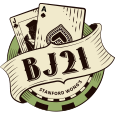For $3,000 and over cashouts why do they demand your players card or id in order to cashout? This has happed at several casinos in vegas. What do they do with your info?


For $3,000 and over cashouts why do they demand your players card or id in order to cashout? This has happed at several casinos in vegas. What do they do with your info?

> For $3,000 and over cashouts why do they demand your players card or id in order to cashout?
Because anybody can ASK for anything; because most will not want to fight the fight; because they are intrusive. At $3K you don't have to give it up, and at the end of the day, they can't make you. But it may take till the end of the day to get cashed out.
See the LVBear584 post on this board dated July 28, 2006. It should answer your question and a little bit more.
See the LVBear584 post on this board dated July 28, 2006. It should answer your question and a little bit more.
I'm reposting it below. It should be noted that Regulation 6A expires later this year. Nevada casinos will then be subject to the federal regulation which is similar in nature. The practical differences, if any, in handling these transacitons after the expiration of 6A are yet unknown. I doubt if there will be significant change in casino policies. It certainly won't get less intrusive or troublesome.
-------------------------------------------
Casinos keep logs of "large" cashouts to comply with CTR regulations. A CTR is required when cashing out in excess of $10,000 in a 24-hour time frame, determined by the hours a casino selects as its "business day." Some casinos use 6 am as the start of the "business day."
Most casinos enter cashouts in excess of $3000 into a log, so a patron theoretically will be noticed if attempting to avoid a CTR by making multiple smaller cashouts that exceed $10,000 in the aggregate.
In Nevada, Regulation 6A applies:
6A.040 Multiple transactions.
1. A 6A licensee and its employees and agents shall not knowingly allow, and each 6A licensee shall take reasonable steps to prevent, the circumvention of Regulation 6A.020 and 6A.030 by multiple transactions within its designated 24-hour period with a patron or a patron�s agent or by the use of a series of transactions that are designed to accomplish indirectly that which could not be accomplished directly. As part of a 6A licensee�s efforts to prevent such circumventions relative to Regulation 6A.030, a 6A licensee shall establish and implement multiple transaction logs pursuant to Regulation 6.090 minimum standards for internal control.
Cashiers are trained to demand a player's card and/or ID. However, the patron is not required to show it, and in the absence of evidence that the transaction would put the patron over $10,000 for the business day, the casino cannot refuse to cash the chips. As a practical matter, most casino employees do not understand that they must cash the chips even in the event of an ID refusal, and do not understand that they can list the patron in the log by entering a physical description of the patron. If you choose to show ID, be aware that the casino has no right to make a photocopy of it if you don�t want it to.
Usually the chip cashing refusal is done out of the ignorance or stupidity of the casino employees involved, rather than malice. Usually, a cage manager understands the requirements and will tell the cashier to give you your money despite your ID refusal. But there are some casinos, such as MGM Grand in Las Vegas, which use this as an excuse to hassle winning players.
If you want to dig in and fight with them, it may take a call to the Gaming Control Board to force the casino to cash the chips. You will be asked to give your name to Gaming. If a Gaming agent makes a personal visit rather than resolving the situation on the phone with the casino, the agent will request you to show ID. As the victim of wrongdoing, not a suspect, you arguably could refuse to show ID to the agent. But it's unlikely that the agent will then help you resolve the problem. If a Gaming agent obtains your name and other personal information, it is likely that it will be given to the casino, either immediately or later, despite your request that Gaming not do so. In Nevada, you will have no practical recourse against the Gaming Control Board for its violation of your privacy. Under statutes enacted specifically for Gaming, the Board operates largely in secret, and much of its work is exempt from normal public record disclosure requirements.
I have to break up my chips into groups of 2500 or less.
This is often the most practical solution. But I want to make it clear that I am not advocating doing anything that circumvents CTR requirements. This advice applies only to the practical aspect of avoiding being hassled by the casino for ID in situations where the casino is not legally entitled to get the ID. This advice assumes the total to be cashed out is $10,000 or less. It is possible that structuring laws could be interpreted to prohibit even this benign splitting up of chips, such as between spouses, even when the total is under the CTR threshold.
Never underestimate the intrusiveness and invasiveness of overzealous casino personnel and/or government officials. The casino could generate a "Suspicious Activity Report" without you knowing about it. In Beat the Players, Bob Nersesian addresses this issue. I highly recommend the book.
Bj21 uses cookies, this enables us to provide you with a personalised experience. More info

